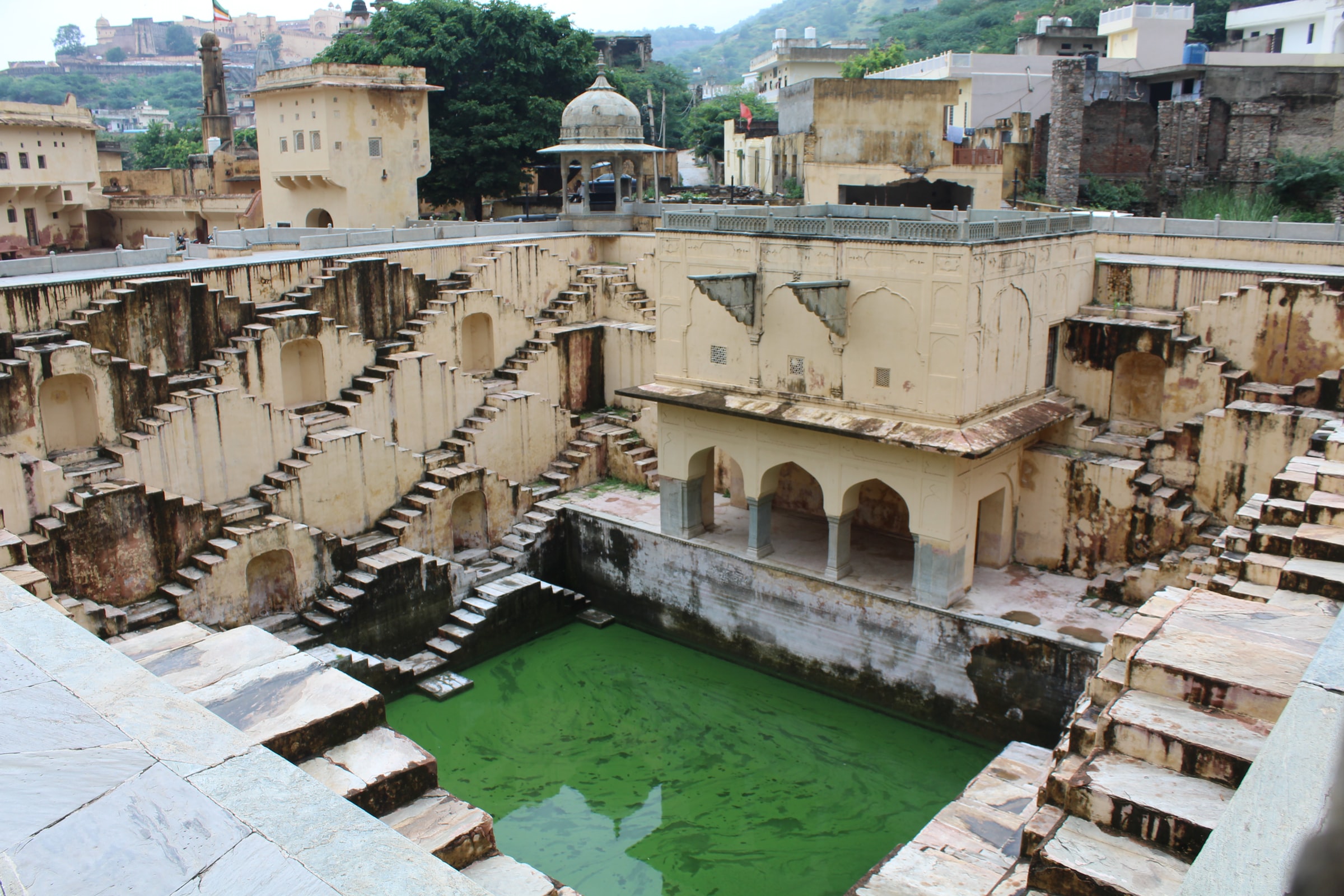Water stress and Urban Resilience in Historic Tier II Cities
Course Name: Water stress and Urban Resilience in Historic Tier II Cities
OCW type: Course
Higher Education Institution: Kamla Raheja Vidyanidhi Institute for Architecture and Environmental Studies (KRVIA), Mumbai

Description of course
Aim: Training Urban design and urban conservation professionals in understanding water vulnerabilities and making urban tier II cities water resilient.
Course Objectives:
To understand historic tier II cities with relation to their water resources, catchment areas and urbanization patterns thereby intervening in a manner to make them self-sufficient in water and climate resilient through appropriate urban infrastructure, planning and policy.
Learning Outcomes:
Understanding the water stresses/conditions or water-based stresses that may impact the city’s water basin or its urban fabric and architecture.
Assess the resilience of the city’s water basin, and its geographical and intervened edge conditions
Generate and appraise interventions that yield greater resilience for the city’s water basin/ conditions and its geographical and intervened edge conditions.
Course Structure
Course Duration: 15 weeks, 3.5 hrs studio twice a week.
Course Frequency: Every Semester
Course Format: 16 weeks Studio program or Short-term Elective
Course Content
Prerequisites for participation: A minimum of 10 students from the Post-graduate Program of Urban Design or Urban Conservation.
Course Syllabus:
Lectures on the following topics:
- Personal, Family & Society Water footprint.
- Historical Water Infrastructures across historic Indian cities and towns.
- Disparities of water footprints amongst various stakeholders in the city across economic classes, gender and locales.
- Pollution: Causes underlying Urbanisation stresses; Science of Eutrophication and Regeneration.
- Understanding Urban scarcity and Flooding in the context of Climate Change; Need for Ecological Restoration; Challenges to Ecological Restoration.
- Constitutional provisions- Legislative, Executive and Judiciary at Center, State, Municipal and Ward levels. Institutional structures- MoEF; CPCB; NEERI; Jal Pradhikaran; Water Board
- Building Peoples Participation- Socio- Cultural & Political dimensions- Drawing relationship between personal water footprint and Urban River Ecologies.
Course Assignments:
- Site visit, research, historic evolution with appropriate documentation
- Resilience framework and identification/ documentation of vulnerabilities
- Strategies/ Structure Plan at macro and micro level (region, city, precinct, site)
- Design/Policy level Interventions using stakeholders such as administration/ communities/ institution
Expected time spent on course:
Time spent in hours: Studio: 100 hours,7 hours a week for 12/ 15 weeks, Short term courses: 35 hours, 7 hours for 5 days of a week
Time spent in ECTS (European Credit Transfer and Accumulation System): Studio: 4 ECTS, Short-term course: 1.4 ECTS
Course Grading
Assessment Criteria and Distribution of Marks:
|
Stages & Details |
Percentage of Total Marks |
|
Site visit, research, historic evolution with appropriate documentation |
20% |
|
Resilience framework and identification/ documentation of vulnerabilities |
20% |
|
Strategies/ Structure Plan at macro and micro level (region, city, precinct, site) |
20% |
|
Design/Policy level Interventions: Internal assessment |
20% |
|
Design/Policy level Interventions: External assessment |
20% |
|
Total |
100% |
Course Evaluation
Evaluation Procedure & Criteria:
Initially a pilot project was conducted with partner institution SPA Bhopal under BreUcom with joint visit and review with Dean and Director of both the institutes only to find the project of interest to the students and relevant to both the course and the institute.
Faculty Evaluation:
Informal interactions in the studio by way of review of daily progress along with formal evaluation by way of juries as per the above provided course grading.
Student Evaluation:
Standard format by way of a questionnaire is available for the students to suggest their learnings as well as areas in which the course can improve.